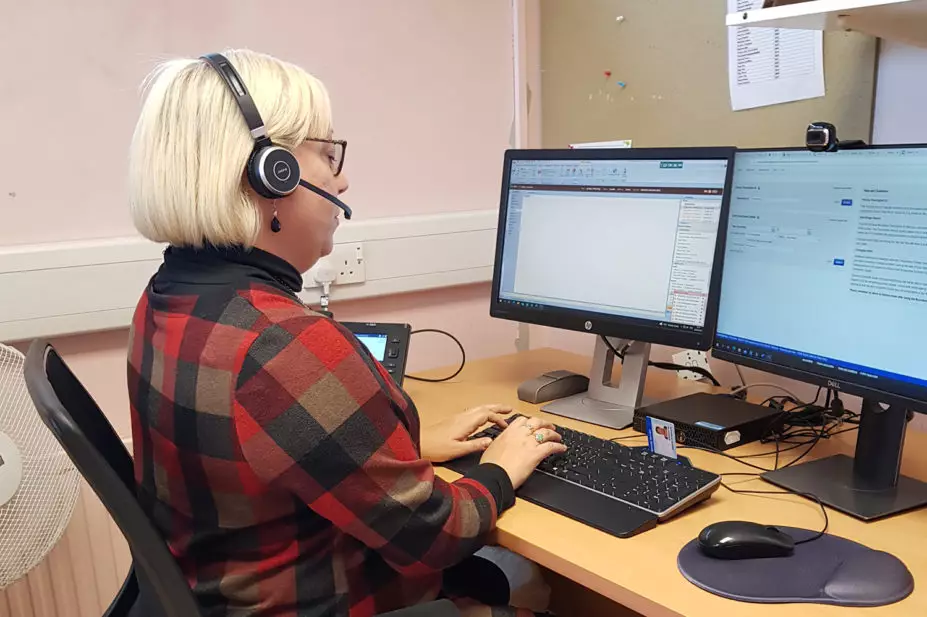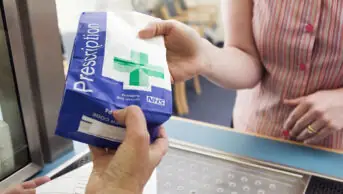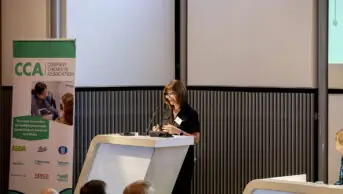
Deborah Hollywood
Dealing with people who are on large doses of opioids is a key part of Deborah Hollywood’s working life. As a specialist in pain management, she looks after people whose pain is not adequately controlled or who have become addicted to opioids.
Slowly reducing their doses or moving them onto different medicines that may be more effective is a vital part of this. But there are challenges: some patients have been put on ever-higher levels of medicines as they have become tolerant to them, she explains.
It is the first time anyone has said to them “we can’t control all your pain”
“I have had patients from the United States on ridiculous levels of oxycontin and I have had patients from this country on 600mg of morphine a day,” she says. “It is the first time anyone has said to them ‘we can’t control all your pain’. It is a complete revelation to them.”
She has not been met with much resistance to tapering from patients. “It is about getting them to think, giving them time to discuss it with their family with all the information they need and then giving them the chance to come back to discuss it,” she says.
But guidance on tapering down opioids is often generalised, with vague references to gradual reductions. Hollywood set about producing resources on how to do this based on her own experience with patients. Over six months, she has reduced the practice’s prescribing by 450,000mg of morphine.
Not surprisingly, these patients have given her some memorable moments. One particularly challenging patient was a young man who had a long history of addiction, suicide attempts and mental health admissions, and with whom she worked hard to establish a relationship of trust. “It was discussed with the mental health team and they asked us to cross-taper from temazepam to diazepam and then taper off. He was on daily prescriptions, had mental health admissions and went into detox,” she says. “At the end of it he went into assisted living but contacted us and thanked us for sticking with him.”
Hollywood qualified as a pharmacist in 2005, after working as a pharmacy technician. She joined a pilot scheme for clinical pharmacists working in GP practices and initially worked across three practices. As the pilot came to an end, she was asked to remain with her current practice. Initially, she was not an independent prescriber and had to pass prescriptions to the GP to be signed. However, two years ago, she completed a course to become an independent prescriber.
She has slotted in well at the practice, which serves a deprived area and has several patients with addiction problems or chronic pain issues. “I was always respected and appreciated at the practice,” she says. She does some training sessions with the rest of the staff and is known as the “go-to” person for resolving problems. Her role has been so successful that the practice is now considering whether to employ a second pharmacist.
There is also support from other primary care-based clinical pharmacists locally, where she can always seek a second opinion or discuss cases.
I have seen things go wrong when a pharmacist is just seen as someone to do repeat prescriptions
But she cautions that things can sometimes go wrong for independent prescribers in primary care. The GPs she works with respect her different skill set and see it as a positive addition to the practice but she is aware this is not always the case. “I have seen things go wrong when a pharmacist is just seen as someone to do repeat prescriptions,” she says. Her message to incoming pharmacists would be “understand what the role is and be prepared to defend it”.
Quick fire questions
- How many prescriptions do you issue a week? “Not a great deal. The work I do tends to take a lot longer but my prescribing budget is a lot higher than many of the pharmacists in the area because of the sort of prescriptions I write.”
- Do you do more prescribing or deprescribing? “Slightly more deprescribing but I could be looking to cross-taper.”
- Any regrets about qualifying as an independent prescriber? “No.”
- Favourite part of the working day? “Getting stuck into a problem which we never knew was a problem!”
- How do you destress? “I am an avid gardener — I absolutely love my garden, it’s my go-to place when I get home.”
- What in life makes your heart sink? “Patients who have been put on loads of painkillers without looking at whether they work and what are the alternatives.”
- What in life makes your heart sing? “My job — and laughter, sunlight and travel. Patients will find the humour in things if they can.”
Click here to return to ‘Meet the prescribers: pharmacists transforming care for patients’


